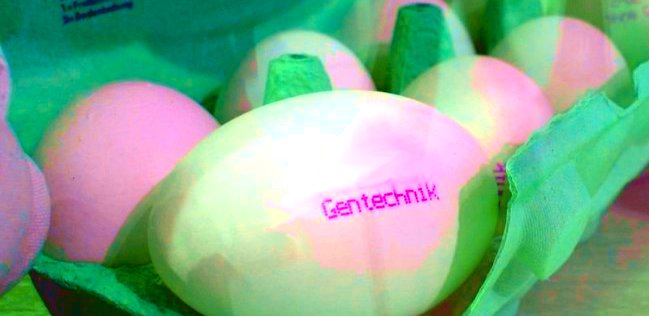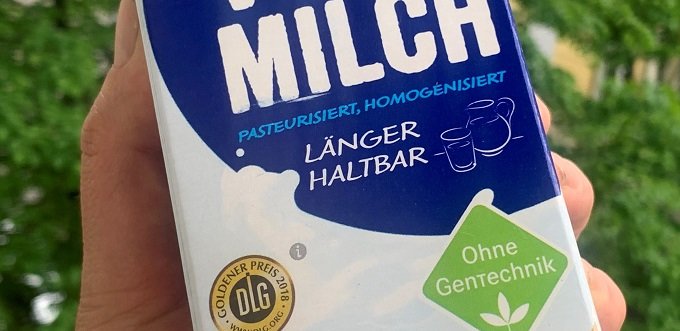News

Participate NOW in EU consultation on new genetic engineering!
Until 22 July 2022, every individual and every business can participate in the EU consultation on the planned new genetic engineering regulation. Especially companies from the "Ohne Gentechnik" (Non-GMO) sector should definitely take advantage of this opportunity.

VLOG General Assembly and Symposium: Executive Board confirmed
On 6 July 2022, this year's VLOG General Assembly (GA) took place in Berlin. The incumbent Executive Board members were confirmed. In the afternoon, for the first time, there was also an "Ohne Gentechnik" (Non-GMO) Symposium, open also to the industry public.

Feed availability: VLOG rules for the exceptional case
Since the onset of the Ukraine war, the availability of non-GMO animal feed has also been an issue. By now, it has become clear that sufficient feed is available in the short and medium run. Nevertheless, in order to be prepared for all scenarios, VLOG has prepared a set of rules. Feedback from the authorities is still outstanding.

Products sold for over 13 billion euros: Maintaining the successful "Ohne Gentechnik" label
Consumers spent around 13.2 billion euros on "Ohne Gentechnik" (Non-GMO) products in Germany in 2021, 4.3 percent more than in the previous year. Therefore, the label remains on a winning streak in its 13th year. Current challenges include possibly new EU GMO rules and deliberately stoked uncertainties around the issue of feed availability.

New petition against dilution of GMO regulations
Numerous environmental, consumer and organic associations have launched a joint Europe-wide online petition against the weakening of EU rules on genetic engineering. In the current legislative process, the EU Commission has positioned itself clearly biased in favor of such deregulation.

Changeover: "VLOG verified" to become a certification mark
The "VLOG geprüft"/"VLOG verified" seal will be changed to the new brand category "Gewährleistungsmarke" ["certification mark"] for independent standard issuers, just like the "Ohne GenTechnik" [Non GMO] seal. All "VLOG verified" licensees will be asked to sign a new license agreement for this purpose. They have already been informed directly.

Sufficient GMO-free rapeseed available: Adequate payment for quality!
Some industry associations repeatedly try to exploit market uncertainties by toppling proven quality standards in agricultural production. Currently, the war in Ukraine is being used to claim an alleged threat of non-availability of GMO-free feed.

Biased questions: EU consultation launched on new genetic engineering
The EU Commission has launched the previously announced public consultation on regulating future genetic engineering. The questions and reply options are formulated with a strong bias towards softening the currently existing rules.

Clandestine genetic engineering in Easter eggs?
Eggs from hens that come from genetically modified breeding hens should be labelled accordingly. This is the opinion of 85 percent of respondents in a representative survey commissioned in Germany by VLOG shortly before Easter. 70 percent would not buy such GM eggs.
![[Translate to English:] [Translate to English:]](/fileadmin/user_upload/_processed_/7/0/csm_OG-Siegel_800_a7830b61db.jpg)
Despite misleading statements: "Ohne Gentechnik" production is secure
The German Raiffeisen Association (DRV) and the German Feed Association (DVT) try to conjure up a collapse of "Ohne Gentechnik" (Non-GMO) production. The "maintenance of the supply of the wide market with GMO-free material" is "not realistic in the long run", the associations claim, apparently misleading deliberately.

GMO-free feed sufficiently available despite Ukraine war
The war in Ukraine is bringing material flows and supply chains to a stumble or even to a standstill. GMO-free feed ingredients are also imported from Ukraine and Russia, but sufficient quantities of rapeseed and soybean meal are currently available. The "Ohne Gentechnik" [Non-GMO] sector is in close internal communication and is preparing for possible future shortages.

CRISPR GM eggs without risk assessment and labelling?
According to internal communication, the EU Commission considers neither approval procedures nor genetic engineering labelling to be necessary for eggs and laying hens derived from genetically modified chickens. This would be tantamount to anticipatory deregulation.


![[Translate to English:]](/fileadmin/user_upload/07_news/_processed_/6/c/csm_Dr_Juliane_Falzmann_220519_800x536_48216644b5.jpg)


